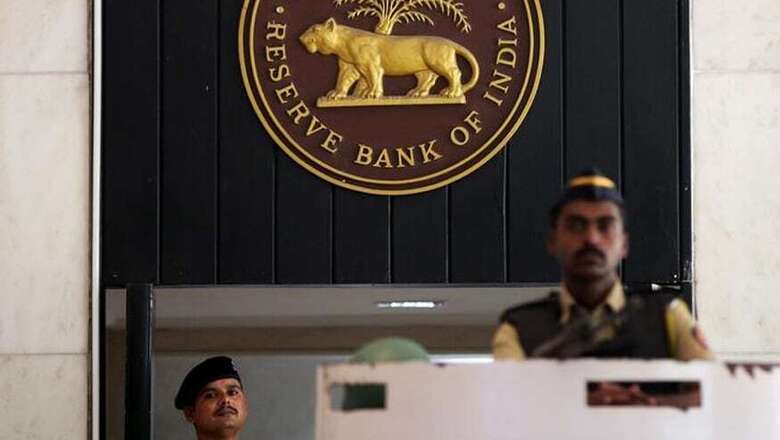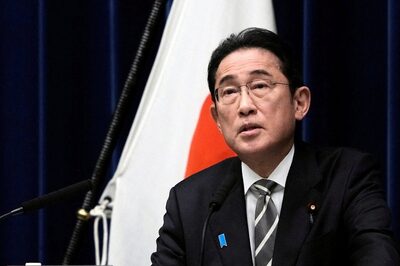
views
New Delhi: The Reserve Bank of India (RBI) in its third bi-monthly monetary policy committee (MPC) meet on Wednesday raised repo rates second time in a row by 25 basis points to 6.5 percent.
The central bank keeping in mind the market scenario has maintained a neutral stand.
Repo rate is the rate at which the Reserve Bank of India lends money to commercial banks.
Reverse repo rate—the rate at which the RBI borrows money from commercial banks—too has been hiked from 6 per cent to 6.25 percent. Five of the six members on the rate panel voted for a rate increase.
The GDP forecast for the April-September period has been pegged at 7.5 percent to 7.6 percent.
A hike in the rates will increase the lending rates by the banks to maintain their profit margins, adding pressure on the common man to pay up more money on loans, pinching the politically important middle class and weakening the already lagging investment climate in the country.
India’s top three banks in terms of lending — State Bank of India, ICICI Bank and Punjab National Bank — have increased their marginal cost of lending rates (MCLR) by 10 basis points, with effect from June 1, 2018, ahead of the RBI policy meeting.
It will certainly have some impact on the quality of some of the more aggressive loans lent by non-bank finance companies in the past year.
The Central Bank also hinted at a global slowdown, “Economic activity in major emerging market economies (EMEs) has slowed somewhat on volatile and elevated oil prices, mounting trade tensions and tightening of financial conditions.”
A couple of days ahead of the RBI rate announcement, SBI had raised interest rates on fixed deposits for select tenures in the range of 0.05 per cent to 0.1 per cent.
The hike comes on back of rising retail inflation, which spiked to a five-month high of 5 percent in June on costlier fuel. The government has mandated the RBI to keep inflation at four percent, the upside of which had been breached for eight startight months.




















Comments
0 comment